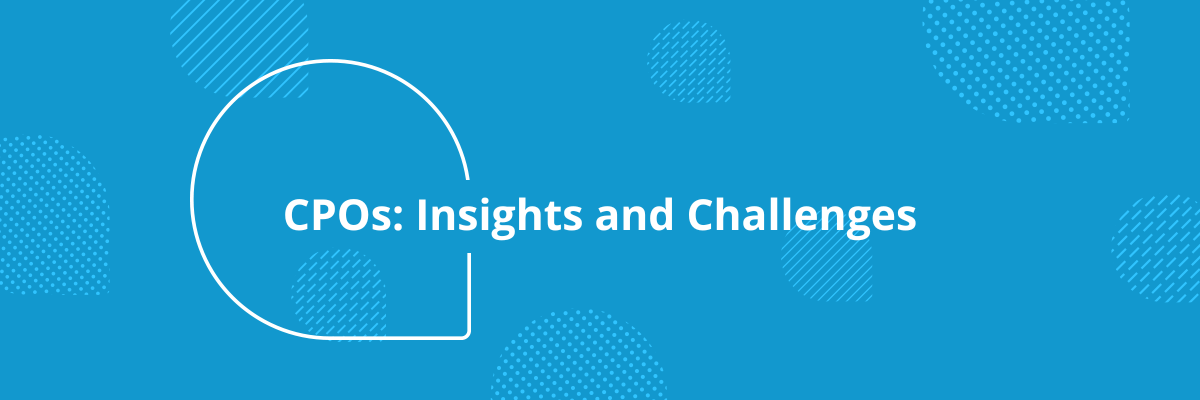In today's rapidly changing business landscape, Chief Procurement Officers (CPOs) are playing an increasingly vital role in high-level decision-making within organizations. However, there are various challenges that they face in order to be successful. This post delves into the key insights and priorities revealed by The 2023 ProcureCon CPO Report, shedding light on their evolving responsibilities and the obstacles they encounter.
The data was collected through the ProcureCon survey conducted by the WBR Insights research team. The survey included 100 procurement, supply chain, and risk management leaders from the United States and Canada. The respondents included a number of C-level executives (51%) and represented various industries such as pharmaceutical, consumer products, manufactured goods, telecom, energy, oil, automotive, and BFSI (banking, financial services, and insurance).
Evolving Roles and Challenges: According to the survey, 41% of respondents have witnessed their CPOs taking on a more prominent role in high-level decision-making over the past two years. However, an almost equal percentage, 47%, feel that their CPOs' roles have remained unchanged. This indicates a significant shift in the perception of CPOs as strategic partners within organizations.
When it comes to the essential skills for CPOs to succeed, 50% of respondents highlight the importance of communication and interpersonal skills. Meanwhile, 47% emphasize regulation and compliance knowledge, and 42% stress the significance of flexibility and adaptability. These findings emphasize the multifaceted nature of the CPO role, which requires a balance of technical expertise and interpersonal abilities.
Focus Areas and Strategies: The survey also reveals the top three focus areas for CPOs in the coming 12 months.
Mitigating the effects of inflation emerges as the leading priority for 41% of respondents, closely followed by technology implementation or transformation at 39%, and delivering bottom-line savings at 36%. These areas reflect the challenges organizations face in a rapidly changing economic landscape and the need for CPOs to adapt and drive efficiencies.
Despite the importance of these focus areas, only 38% of respondents claim that their 2023 procurement strategies are well underway. The majority, 52%, have only made initial progress. This indicates that organizations need to accelerate their strategic efforts to fully leverage the potential of procurement in achieving their goals.
Supplier Relationships and ESG: In terms of supplier relationships, 49% of respondents state that their CPOs are directly involved in negotiations with critical suppliers. This emphasizes the strategic role CPOs play in establishing and managing key partnerships that drive organizational success.
When it comes to environmental, social, and governance (ESG) decision-making, 66% of respondents perceive their CPOs to play only a moderate role. However, 59% indicate that their procurement team's visibility into ESG metrics is on par with their competitors, suggesting a commitment to sustainability across the board.
Priorities and Challenges: The survey highlights the high-priority efforts for CPOs over the next years. The top priorities include:
- enhancing the speed and efficiency of source-to-pay activities (81%),
- reducing operational costs (78%),
- reducing manual tasks from workflows (72%),
- generating actionable insights for better decision-making (65%),
- and freeing up time to explore new opportunities (64%).
However, there are barriers that hinder effective evaluation and procurement operations. Manual data entry (49%), poor or incomplete data (46%), and data enrichment challenges (42%) emerge as the three biggest obstacles. Addressing these challenges requires a strategic approach to digitization, automation, and data management.
The role of Chief Procurement Officers has witnessed significant changes in recent years. While some CPOs have taken on more prominent roles in high-level decision-making, there is still progress to be made across the board. Developing a balance of technical expertise and interpersonal skills, aligning procurement strategies with organizational goals, fostering strategic supplier relationships, and addressing key challenges will be crucial for CPOs to thrive in the dynamic business landscape of 2023 and beyond.
Other articles in this series:
Part 2: High-Level Decision-Making
Part 3: Top Priorities in 2023
Part 4: ESG Monitoring and Reporting
Part 5: New Frontiers

.png)
-2.jpg)

